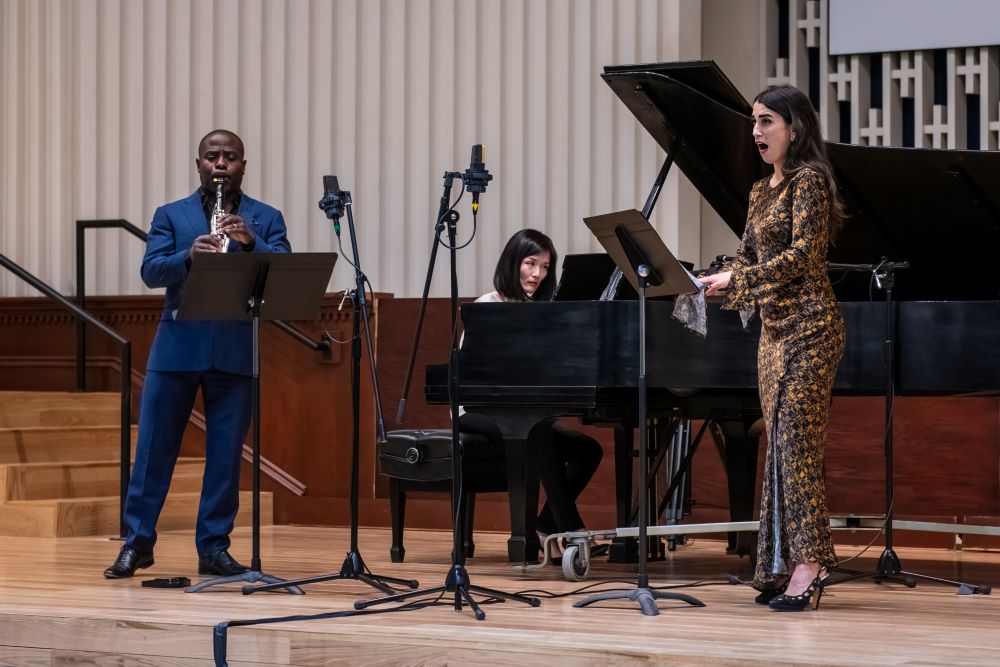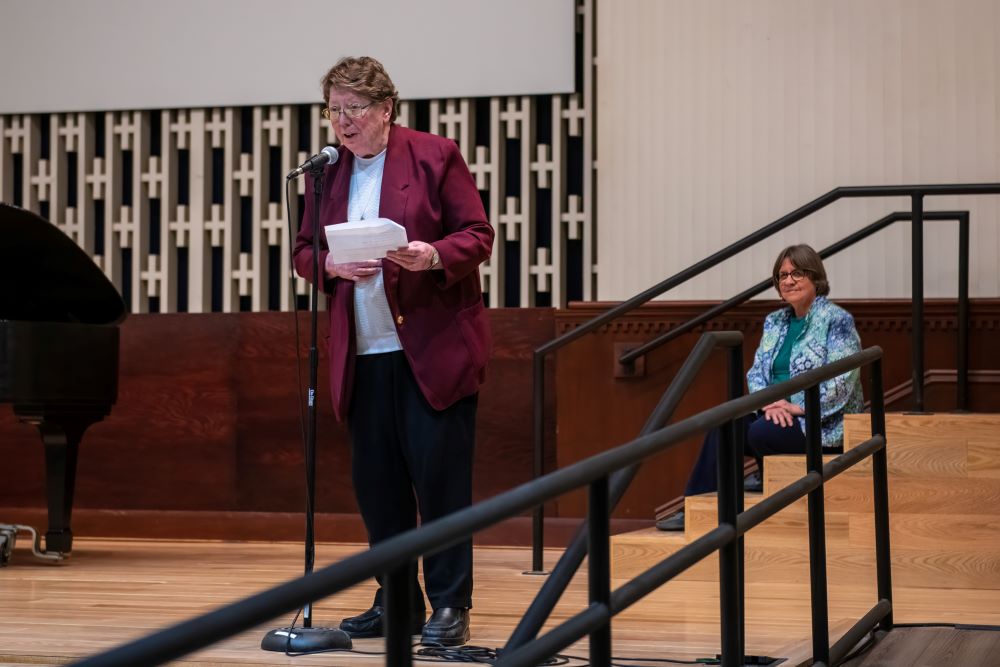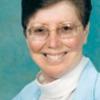
Musicians (from left) Anthony McGill, Myra Huang and Elena Perroni(Courtesy of Ronald Werman) perform "Chavah's Daughters Speak," composed by James Lee III. The piece includes poetry by Sr. Lou Ella Hickman. (Courtesy of Ronald Werman)
Emily Dickinson, Elizabeth Bishop and I have something musically in common.
Emily, the beloved 19th-century darling of American poetry, and Elizabeth, who was awarded the 1956 Pulitzer Prize for poetry, and I are tied together with the ribbon of our poetry set to music.
Emily has been the darling of multiple musical composers, so much so that Valentine Cunningham, a retired professor of English at the University of Oxford who writes about the arts, commented on it in an article for The Guardian. In "The sound of startled grass" he wrote, "In 1992 Carlton Lowenberg counted over 1,600 settings of her poems, and that number rose dramatically through the 1990s." He noted that even the renowned American composer Aaron Copland would use 12 of her poems for his music.
Composers such as John Harbison, Christos Hartzis and Ned Rorem — and several others — created music for Elizabeth's poems. The Canadian soprano Suzie LeBlanc commissioned John Plant and Emily Doolittle to put music to Bishop's words.
So Kevin Watson, publisher at Press 53, dropped a bomb when he emailed me in January 2021. Composer James Lee III wanted permission to use a few poems from my book she: robed and wordless for a new chamber music piece. For weeks I couldn't wrap my mind around the fact that this up-and-coming composer was going to create music for my poems.
It has been two years since the premier of "Chavah's Daughters Speak" at Y92 in New York City. I still find myself thinking, "I breathe the same air in their company." I also feel a little tug, remembering that Bishop read some of her poetry at Y92 in New York City on Oct. 10, 1977.

Sr. Lou Ella Hickman speaks about her poetry collection as Fern Jennings, president of the Cleveland Chamber Music Society, looks on. (Courtesy of Ronald Werman)
I grew up singing some of the great hymns from the Methodist hymnal in a choir. While many mainline Protestant faith communities have choirs, they also have a long tradition of hearty congregational singing. I also sang in elementary, junior high and high school choirs. Yet perhaps what truly shaped my poetry was hearing my mother sing. She had been a voice major before she switched to elementary education. On the surface, mine was an ordinary background in music — ordinary as the air I breathed.
In junior high school, I started writing poetry, but it wasn't until a few years after I entered the church in 1966 and the convent in 1970 that my poems were accepted for publication. For some years now, my official ministry has been writing as well as spiritual direction.
The Y92 concert wouldn't have happened without the book. After my poetry manuscript about Biblical women was rejected several times very early on, I discovered not only how difficult it is to get a book published, but even more difficult for a book of poetry. So, I filed the manuscript away for some 30 years.
I truly believe my book was a miracle that dropped into my life. In fact, both my poetry editor, Tom Lombardo, and I occasionally talk about "the miracle of the book." Sometime in 2007 I submitted a poem to Tom's submission call for an anthology on grief. After the poem was accepted and published, I decided to help market the book locally.
As my congregational initials — IWBS, the Sisters of the Incarnate Word and Blessed Sacrament — were after my name in the book, I thought it would be a win-win situation: A young lady interested in religious life might see it and call and Tom might get another sale. Each time I dropped off a press release, I would email him, letting him know he might get a request for a book. After several drop-offs, I thought it might be a good idea to call Tom so he could put a voice to my name.
During the conversation, he asked the question: "Sister, have you ever published a book or are you working on a manuscript?" As I knew he was the poetry editor for Press 53, I told him I had planned on sending him the manuscript I had written about several Biblical women sometime in the future. His voice brightened. "I'm interested. Send them to me." Weeks later, I got a phone call. He wanted more poems — some 60 to 80 more! My voice squeaked, "You want how many more?"
Six months later my manuscript was in the mail. Then, she: robed and wordless was launched on Sept. 1, 2015. The book would "miracle" again in 2021, with Kevin's email about James Lee's request to use four or five of my poems for some music.
On Feb. 21, I received another email, this time from David Murray, editor/publishing manager of Subito Music Corporation, the publisher of Lee's music. He told me that there would be a concert on March 28 in Cleveland, Ohio.
"We have a concert!" I blurted out to my superior general, Sr. Annette Wagner. Ten minutes later, I told Janel Benavidez, our communications coordinator: "We have a concert! Will talk to you later." Two days later she stopped by when I was on phone duty. "Sister, you have to go to Cleveland." And I went. Thanks to frequent flyer miles, Sr. Irma Gonzalez was able to go with me.
The trip even included hospitality. Sister Irma and I stayed with the Cleveland Incarnate Word community, who wined and dined us. Five sisters were able to attend the concert at Disciples Christian Church.
Advertisement
The miracle doesn't stop there. Another concert of "Chavah's Daughters Speak" has been scheduled for January 24, 2024, sponsored by the Philadelphia Chamber Music Society. The performers were to be the original Y92 trio, Susanna Phillips, Anthony McGill, and Myra Huang. What a gift, just days before my 75th birthday!
After the February concert, I met the trio: Elena Perroni, Anthony, and Myra. (Susanna who was scheduled to perform could not attend, due to a health issue.) As we posed for a photograph, I told Anthony, "I understand I have you to thank for this concert." I could have died and gone to heaven on the spot when he responded, "I really like this program. It is one of my favorites."
As I have reflected on the experience, I have often marveled that humanity has been gifted with the ethereal art of music. While many studies (as in Brian Resnick's article, "The scientific mystery of why we humans love music") have attempted to answer why this is so, for me it remains a mystery and a gift — and rightly so. James Lee III found the breath of mystery between the words in my poems.
Breath. Music. Words from my poems. For me, nothing less than God's miracle.







